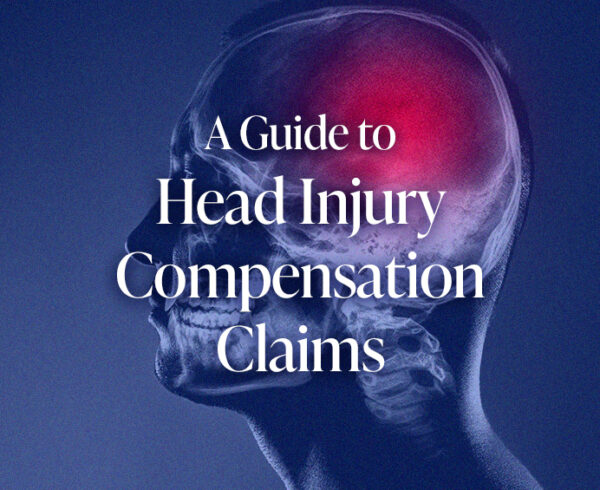If you’ve experienced a personal injury or illness caused by someone else’s actions, you may be entitled to claim compensation. Here at CEL Solicitors, we work to get the best compensation for people who have suffered due to another individual’s negligence. Whether you are already in the process of filing a claim or are considering starting one, this guide will provide answers to your questions about personal injury claims and the steps involved in getting compensation.
What Are Personal Injury Damages?
Personal injury damages refer to the financial compensation awarded to individuals who have suffered physical, emotional, or psychological harm due to an accident or injury caused by someone else’s negligence or wrongful actions. In 2023, 61,000 personal injury claims were made. These damages aim to compensate for both the tangible and intangible effects of the injury, such as medical expenses, lost wages, and property damage. In addition, personal injury damages may also include compensation for pain and suffering, emotional distress, and loss of quality of life. The goal is to help the injured party recover financially and emotionally, restoring their well-being as much as possible after the incident.
Types of Personal Injury Damages
Several types of damages can be awarded in a personal injury case, depending on the nature of the injury and the circumstances surrounding the incident. The main types of damages include:
Compensatory Damages
These are the most common types designed to compensate the victim for losses and expenses incurred due to the injury. They can be further broken down into:
Economic Damages: These include quantifiable financial losses such as medical bills, lost wages, rehabilitation costs, and property damage.
Non-Economic Damages: These compensate for non-monetary losses like pain and suffering, emotional distress, and loss of enjoyment of life. Although more subjective, these damages aim to address the intangible effects of the injury.
Punitive Damages
These are awarded in cases where the defendant’s actions were particularly egregious or malicious. Rather than compensating the victim, punitive damages are meant to punish the wrongdoer and deter similar behaviour in the future.
Nominal Damages
These are small amounts of money awarded when a legal wrong has occurred, but the victim did not suffer significant actual harm or financial loss. They serve to acknowledge that the defendant was in the wrong.
Special Damages
These are a subset of economic damages that cover specific out-of-pocket expenses, such as medical treatment, lost wages, or transportation costs related to the injury. These can include:
Medical Costs: This includes both past and future medical expenses for treatments, surgeries, prescription medications, and therapy that are directly related to your injury.
Lost Wages: If the injury caused you to miss work, you may be entitled to claim compensation for the wages you lost during recovery. If your injury prevents you from returning to work in the long term, you can also claim future loss of earnings.
Rehabilitation & Care: If your injury requires nursing care or rehabilitation, the costs associated with this can be claimed under special damages.
Home or Car Modifications: In cases of severe injury, you might need to modify your home or car to accommodate a new physical disability. These expenses are also covered under special damages.
General Damages:
These cover more subjective losses like pain and suffering, mental anguish, and loss of future earnings due to permanent injury or disability.
The type and amount of damages awarded depend on the severity of the injury, the impact on the victim’s life, and the specific laws in the jurisdiction where the case is heard. Medical evidence will be used to support this aspect of your claim. Additionally, the damages will take into account any psychological effects resulting from a serious injury, such as post-traumatic stress disorder (PTSD) or depression.
What Is the Difference Between General and Special Damages in a Personal Injury Case?
In most personal injury cases, the claim for special damages typically includes costs such as prescription charges, travel expenses for appointments, and lost wages.
If your injury has caused you to be unable to work, and you have lost income as a result, special damages will cover those lost earnings. If your injury is severe enough to prevent you from working temporarily or permanently, you can also claim for future lost earnings. Public service workers, such as police officers and firefighters, who cannot return to their roles may be eligible for additional special damages to compensate for the loss of “congenial employment,” acknowledging that their job was more than a source of income.
Special damages can also cover necessary expenses related to your recovery, including medication, nursing care, and rehabilitation. If your condition requires modifications to your home or car, you may also be entitled to claim these costs.
It’s important to keep detailed records and receipts for any recovery-related expenses, as they will be necessary as evidence when supporting your claim for special damages.
All of this will be discussed with you by your personal injury solicitor.
Time Limits for Personal Injury Claims
When making a personal injury claim, it’s important to be aware of the time limits that apply. In most cases, there is a legal time frame, known as the statute of limitations, within which you must file your claim. In the UK, the general time limit for personal injury claims is three years from the date of the injury or from when you first became aware of the injury and its cause.
However, there are some exceptions to this rule. For example, if the injury involves a minor (under 18 years old), the time limit is extended until they turn 18. Additionally, if the injury has long-term effects that become evident later, the three-year period may start from the date you discover the injury. It’s important not to delay pursuing your claim, as failing to act within the time limit could result in losing your right to compensation. Consulting a personal injury solicitor like CEL Solicitors as soon as possible after the injury can help ensure that your claim is filed within the appropriate time frame.
Paying for Legal Action in Personal Injury Claims
When pursuing a personal injury claim, one of the primary concerns people often have is the cost of legal representation. However, there are several options available to help ease the financial burden of legal fees.
No-Win, No-Fee:
Our personal injury lawyers work on a “No-Win, No-Fee” basis, meaning you don’t pay any legal fees unless you win your case. This arrangement allows you to pursue your claim without the risk of incurring legal costs if the case is unsuccessful. If you win, your lawyer’s fees will typically be deducted from your compensation, along with any expenses incurred during the process.
Legal Aid:
In some cases, individuals who meet specific financial criteria may be eligible for legal aid. This government-funded assistance helps cover legal costs, ensuring access to legal representation for those who cannot afford it. However, not all personal injury cases are eligible for legal aid, and eligibility is assessed based on your income, savings, and the severity of the injury.
Conditional Fee Agreements:
Conditional Fee Agreements (CFAs) are another option where lawyers agree to represent you without upfront payment. Under this arrangement, your lawyer only receives a fee if the case is successful, but a success fee may be added to the original cost of legal services. This fee is usually a percentage of your compensation, and it’s agreed upon in advance.
Insurance:
In some instances, your insurance policy, such as legal expenses insurance (which can be part of your home or car insurance), may cover the costs of a personal injury claim. It’s worth checking your insurance policy to see if it provides any support in case of injury claims.
Private Funding:
If you have the financial means, you may pay for legal representation upfront, although this is less common for personal injury cases due to the availability of the aforementioned options.
Before agreeing to any legal arrangement, it’s important to discuss fees and payment structures with your solicitor, ensuring you fully understand how the costs will be handled. This can give you peace of mind and allow you to focus on your recovery, knowing that your legal fees are taken care of appropriately.
Litigation Funding:
Litigation funding involves third-party investors covering legal costs in exchange for a portion of the compensation. While this can provide access to justice, recent developments have raised concerns. For example, a 2023 Supreme Court ruling in the UK led to a 75% drop in litigation funding activity and a 23% decline in group claims, prompting firms to consider alternative jurisdictions for dispute resolution.
Choosing a Solicitor
If you’ve suffered a personal injury and are considering making a claim, CEL Solicitors is here to help. Our expert team is dedicated to getting you the compensation you deserve. With our No-Win, No-Fee service, you can pursue justice without worrying about legal costs. Don’t wait—time limits apply to personal injury claims, so it’s important to act fast. Contact CEL Solicitors today for a free consultation and take the first step towards getting the compensation you deserve.













